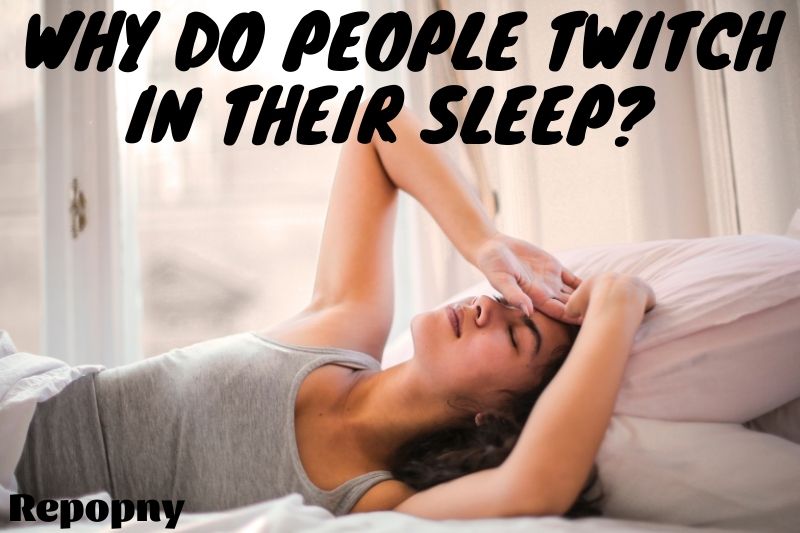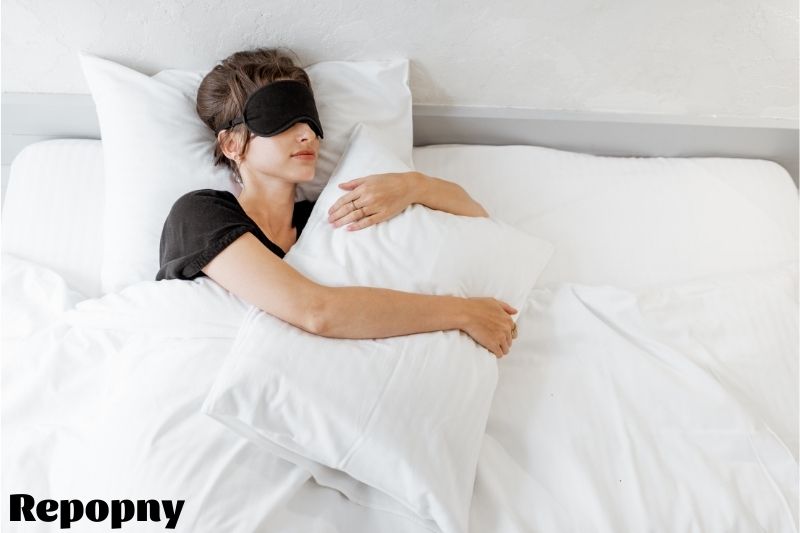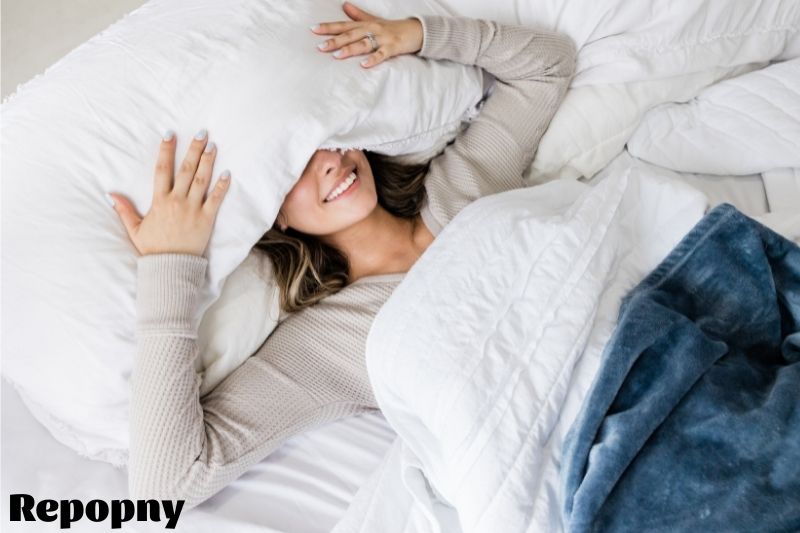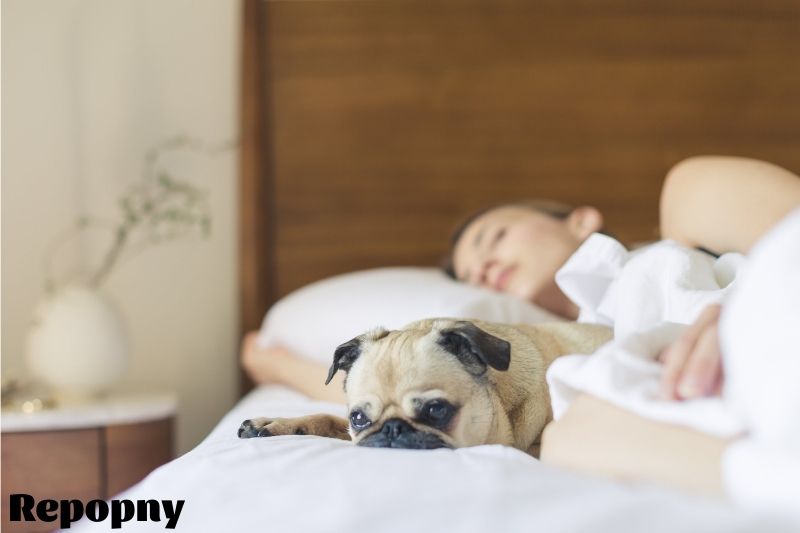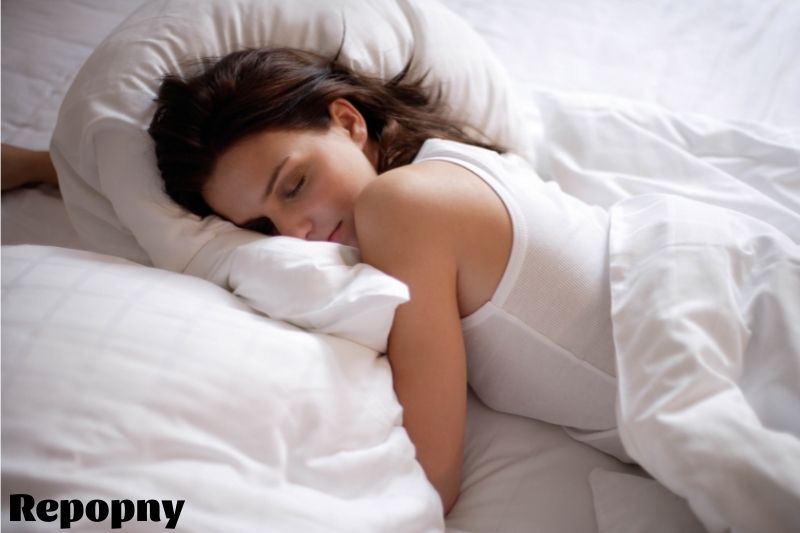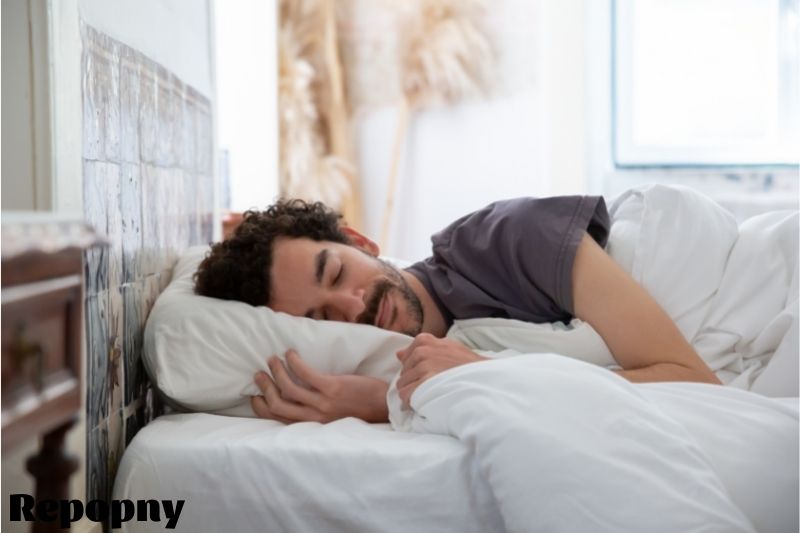There are many reasons for the question: why do people twitch in their sleep?. It could be due to a medical condition, such as epilepsy or Parkinson’s disease. It could also be a side effect of certain medications.
Or, it could simply be a regular part of the sleep cycle. Whatever the cause, if you’re twitching in your sleep, it’s essential to talk to your doctor to rule out any underlying medical conditions.
Contents
What Is A Hypnic Jerk?
Have you ever dreamed of falling from the sky and then startle awake as you get closer to the ground? That, it turns out, has a name! Involuntary muscle contractions that people experience as they fall asleep are hypnagogic jerks, hypnic jerks, or sleep beginnings. As your mind and body prepare for bed, this experience is named for the shift from wakefulness to sleep.
These muscular spasms can be minor and unnoticed, but they can also be strong enough to wake you up. A few things can happen when you get muscular twitches while sleeping. Dreams concerning being frightened, jumping or falling, and rapid heartbeats and breathing are examples.
Hypnic jerks are a natural aspect of sleep start in most situations. These spasms typically strike at random, affect people of all ages and genders equally, and occur intermittently in roughly 70% of the population, with up to 10% of people having them regularly. Although most sleep scientists and clinicians believe they are harmless, they can be disconcerting – especially if they happen repeatedly!
Why Are You Twitching While Sleeping?
Nearly everyone is affected by hypnic jerks. But what causes folks to twitch while sleeping? There are some theories for these jerks or twitches, albeit the actual source and reason are unknown.
One theory dates back to our ape forefathers. Their muscles may tense up to brace for impact when they slept in the trees and fell out. These twitches in your sleep could be relics of that response. The jerks are the body tensing up when the brain misinterprets relaxation as falling out of a tree.
This is linked to the sensations of falling or being shocked in our dreams (a rare phenomenon known as dream incorporation). This is another unique and intriguing quality that we may credit our forefathers for.
Another possibility is that as you move from wakefulness to sleep, your brain electrically “misfires.” Hypnic jerks are most common during the stage of sleep when your muscles begin to relax, and you begin to drift off. Motor parts of the brain can get aroused spontaneously during this period.
During a less-than-smooth transition to sleep, your brain may perceive this stimulation as awake. Because these symptoms are unlikely to occur regularly every night, other external variables may be to blame for this “misfiring.”
External variables that can cause hypnic jerks to include:
- Exercising in the evening can make it challenging for your body to rest before bedtime.
- Stimulants, such as caffeine, nicotine, or some drugs, alter sleep patterns.
- Maintaining a high-stress lifestyle can cause your brain to remain overly busy while trying to sleep.
- External sleep interruptions, such as loud noises and bright lights, or even a companion working in the bed next to you, might prevent you from cycling into a deep sleep.
Do Hypnic Jerks Pose A Threat?
Although hypnic jerks are disconcerting, they are not harmful. They’re considered a natural element of falling asleep. It affect up to 70% of the population.
This symptom can be irritating and disrupt your or your partner’s sleep, but that’s usually the worst that they can do. While a highly severe jerk could result in a slight injury, this is not a regular occurrence.
When Should You Consult A Doctor About Hypnic Jerks?
Hypnic jerks are distinct from other motions that can happen when you’re awake or asleep. They are brief jerks that occur during the transition from wakefulness to sleep. They are typically considered harmless. You probably don’t need to see a doctor if you merely have hypnic jerks. Symptoms that are comparable to hypnic jerks, on the other hand, may necessitate medical intervention.
If you have repeated, persistent contractions in your muscles during the day that spread to other portions of your body, you may have a different sort of myoclonus than a hypnic jerk. Epilepsy, nervous system problems, a head or spinal cord injury, or organ failure can all cause myoclonus.
If you have jerking movements in your sleep that aren’t hypnic jerks as you fall asleep, it could signify periodic limb movement disorder. Speak to your doctor if you think your muscular jerks are a sign of something else.
Children And Babies With Hypnic Jerks
People of all ages might experience sleep deprivation. According to the American Academy of Sleep Medicine, adults are more prone than children to experience frequent or severe.
Children, on the other hand, can have this symptoms from birth. Myoclonus, or uncontrollable body movements, is a developmental trait of the human neurological system that appears in the early stages of fetal development, according to the author of an older study from a 2003 source.
Will Hypnic Jerks Can Wake Us Up?
A person can wake up due to hypnic jerks. However, this does not usually happen. The muscle contraction’s intensity determines it.
Smaller movements are unlikely to startle someone awake. They may only be aware of their hypnic jerks if a partner or carer notices them.
A hypnic jolt’s accompanying signs and symptoms can also cause someone to become aware. A person may have dreams about falling out of bed, from a tree, or through a void. Even though it’s not clear which sensation arrives first, it’s enough to startle individuals awake.
If you care about healthy sleeping, see this guide: Can You Die From Lack Of Sleep?
How Can You Stop Twitching When Sleeping?
Other causes of hypnagogic jerks or sleep beginnings may be under your control and might be influenced by your everyday activity. Remember that not everyone will have the same experience.
Patience and experimenting with various approaches can aid in the discovery of the ideal method that is most useful for you. If you get nightly hypnic jerks and are concerned about your sleep, it’s good to speak with your doctor about other treatment choices.
Exercise first thing in the morning
Physical activity during the day is essential for a restful night’s sleep. Intense physical exercise too close to bedtime, on the other hand, may interrupt your sleep.
Stop moderate-intensity activity at least 90 minutes before your evening pre-sleep routine to avoid late-night exercise impacting sleep. This will restore your core body temperature and endorphin levels to sleep-friendly levels.
Reduce the quantity of coffee and alcohol you consume during the day and nocturnal activity. After midday, reducing your consumption can assist in alleviating jitters and restlessness. Too much alcohol before bed might make it difficult to fall asleep and increase the frequency of hypnic jerks.
Make a sleep regimen and a nighttime ritual for yourself
Maintain a consistent sleep schedule and bedtime routine for a better night’s sleep. This habit signals to the body that it’s time for bed, making it easier to fall asleep regularly over time.
An increase in twitching when sleeping could be caused by an erratic sleeping pattern caused by shift work or late nights. Dim the lights and do anything to assist down your heart rate and rest your mind, such as reading or breathing exercises to get ready for bed.
Hard to get into sleep, maybe this guide can help: How To Sleep Fast In 5 Minutes?
Remove any external pressures or distractions from your sleep.
“A ruffled mind makes a restless pillow,” Charlotte Bronte once quipped. As the adage goes, stress and anxiety can disturb sleep and worsen hypnic jerks. Mindfulness meditation, breathing methods, progressive muscle relaxation, and other stress-reduction approaches may all assist in minimizing this symptoms.
External sleep interruptions might sometimes make it difficult to get a good night’s sleep. External sounds and stimulation can keep you from falling and staying asleep, such as leaving the TV on, sleeping with the windows open, having bright lights beaming in, and other external sounds and stimulation.
Look for ways to eliminate outside distractions. Some examples are wearing a sleep mask drapes to block light or earplugs to lessen the volume of sounds you can’t control.
It’s vital to realize that hypnic jerks aren’t a life-threatening condition and are unlikely to result in complications. However, if you are scared or concerned about symptoms and are aware that you have them regularly, speak with your health care physician about what you may do to enhance your ability to fall and stay asleep.
Solutions from SleepScore Labs
With science-backed suggestions and insights, download the free SleepScore App for insights and articles on how well you sleep, the quality and amount of your sleep cycles, and sleep improvement progress. It’s available for free on the App Store and Google Play Store!
You may also visit the SleepScore Store for a wide choice of sleep-promoting devices, like white noise machines, lighting solutions, and more, carefully handpicked by SleepScore Labs’ team of researchers to assist your sleep-wake cycle!
FAQs
Is twitching in the middle of the night a seizure?
Everything you need to know about nocturnal seizures: seizures that occur while a person is sleeping is known as nocturnal seizures. They can cause jerking and shaking of the body and unusual nighttime behavior such as waking up for no apparent reason or urinating while sleeping.
Does it matter if you twitch in your sleep?
Hypnic jerks and twitches are pretty common and entirely normal. They are simply muscle contraction that ranges from moderate to strong during sleep and does not usually signal an underlying health condition.
Conclusion
If you are suffering from abnormal movements during sleep or do not know the cause of the activities, you should talk to your doctor immediately. The medical conditions for twitching may be severe or just minor, so it is essential to understand the cause before doing anything. Repopny hopes this article is helpful.
